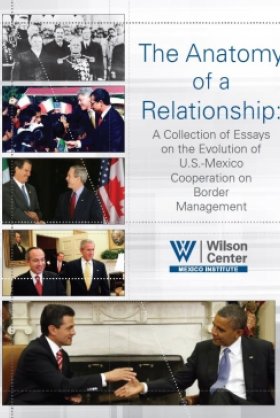Becoming a Useful Tool for Governments: The Evolution of the North American Development Bank



After two decades of operation, the North American Development Bank (NADB) celebrated its 20th anniversary with ample possibilities of becoming a more meaningful and useful tool for Mexico and the United States in their bilateral agenda and, more specifically, for their border communities. Furthermore, NADB is one of the few truly bilateral entities; its evolution provides good lessons for border management and for future institution-building.
This paper is divided into three parts: 1.) a recap of why and how NADB came to be; 2.) NADB’s evolution; and 3.) a review of NADB’s more recent developments and an explanation of why NADB is better positioned today, as compared to twenty years ago, to be relevant and useful in the bilateral agenda.
The above text is an excerpt from the introduction to the essay. This essay is part four of our series "The Anatomy of a Relationship: A Collection of Essays on the Evolution of U.S.-Mexico Cooperation on Border Management."


The Mexico Institute seeks to improve understanding, communication, and cooperation between Mexico and the United States by promoting original research, encouraging public discussion, and proposing policy options for enhancing the bilateral relationship. A binational Advisory Board, chaired by Luis Téllez and Earl Anthony Wayne, oversees the work of the Mexico Institute. Read more
